The Deepest Scuba Diving Records Ever
Explore the amazing feats behind the deepest scuba dives in history.
Imagine venturing into the deepest parts of the ocean, where sunlight fades away and the pressure is immense. Divers around the world have taken on this challenge, exploring mysterious depths that few have ever seen. They've set amazing records, showcasing human endurance and a love for adventure. Let's look at the stories behind the deepest scuba dives ever recorded.
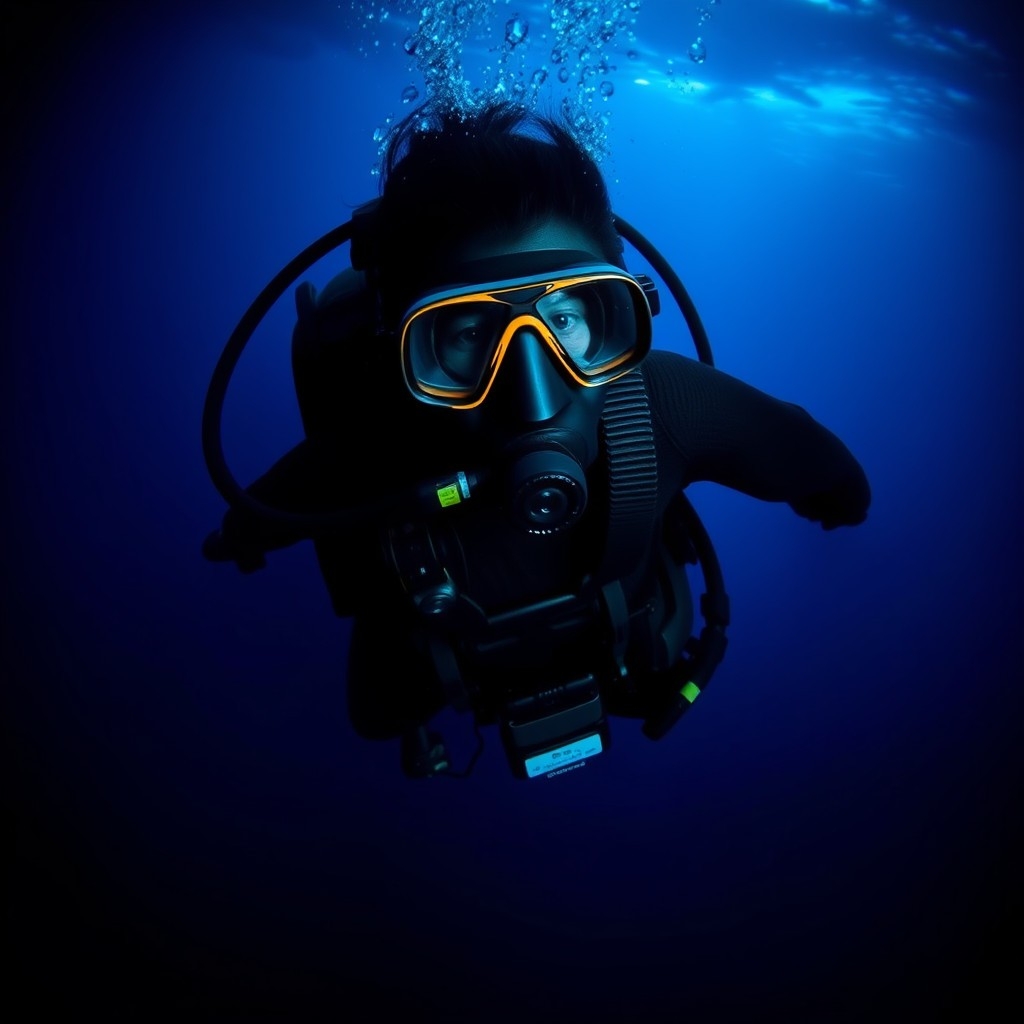
Why the Deep Ocean Fascinates Us
The ocean covers over 70% of our planet, but we still know so little about it. Beneath the waves lies a world teeming with life and hidden wonders. Many divers feel drawn to the unknown, pushing themselves to go deeper in search of new experiences.
Early Explorers
Long ago, pearl divers and sponge hunters held their breath to explore the depths. Their bravery paved the way for centuries of underwater exploration. As time passed, inventions like the diving bell and early scuba gear allowed people to stay underwater longer and dive deeper.
Modern Reasons
Today, divers have many motivations—scientific research, personal goals, or simply the thrill of discovery. The deep sea offers wonders you can't find anywhere else. Every dive could reveal something that no one has ever seen before.
Ahmed Gabr: A Record-Breaking Dive
On September 18, 2014, Egyptian diver Ahmed Gabr made history. He descended to an incredible depth of 332.35 meters (1,090 feet) in the Red Sea near Dahab, Egypt. This achievement set the Guinness World Record for the deepest scuba dive ever.
Preparing for the Dive
Ahmed didn't decide to break the record overnight. He spent over four years getting ready. As a former special forces officer and experienced diving instructor, he knew the risks. He gathered a team of experts to plan every detail. They ran simulations, tested equipment, and made a thorough dive plan.
The Dive Itself
On the big day, Ahmed began his descent. He moved from clear, sunlit waters into darker zones where few creatures live. At that depth, the pressure is more than 35 times what it is at the surface. He reached his target depth in about 12 minutes, overcoming immense challenges.
The ascent was much longer. Ahmed took nearly 15 hours to come back up, making many stops along the way. These pauses, called decompression stops, let his body adjust and helped prevent decompression sickness. His focus on safety and precision was impressive.
Celebrating the Achievement
When Ahmed surfaced, his team and the diving community celebrated. His success wasn't just personal—it showed what's possible with dedication and careful planning. His dive inspired divers everywhere to pursue their own goals while keeping safety first.
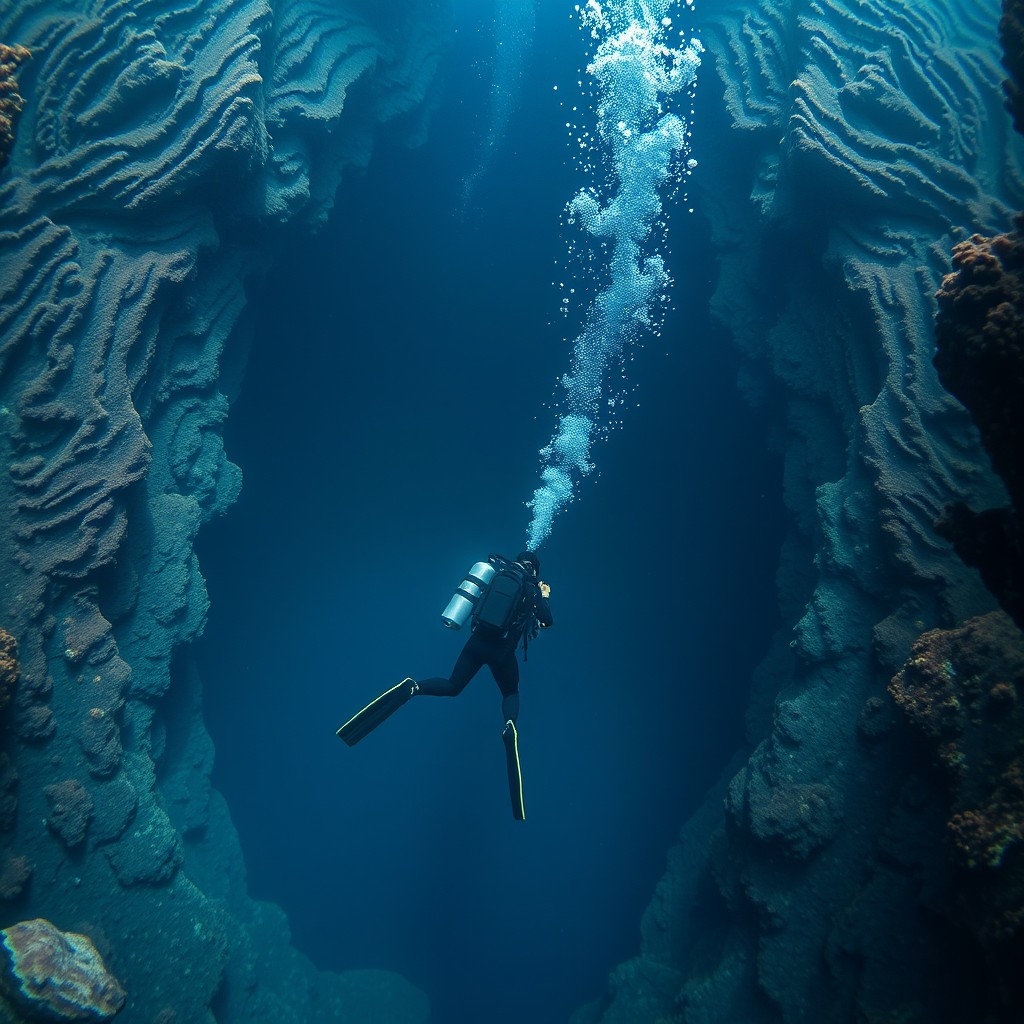
Challenges of Diving So Deep
Diving to extreme depths isn't just about courage. There are many physical and technical challenges. Water pressure increases by one atmosphere every 10 meters. At 100 meters, the pressure is 11 times greater than at sea level. This huge force affects everything during a dive.
The Effects of Pressure
The human body isn't built to handle the intense pressure found deep underwater. High pressure can impact organs and tissues. Equipment must also withstand this force. Even small gear failures can become serious problems.
Breathing Issues
Breathing regular air under high pressure can be dangerous. Oxygen can become toxic, and nitrogen can cause narcosis, affecting judgment and movement. Divers use special gas mixtures, like trimix, which includes helium to lessen these effects.
Reliable Equipment
Having dependable gear is crucial. Regulators, masks, wetsuits, and other equipment need to work perfectly under extreme conditions. Divers often carry backups in case something goes wrong.
Mental and Physical Demands
Deep diving requires mental strength and physical fitness. Divers must stay calm and focused, ready to handle unexpected situations. The darkness and isolation can be disorienting, so mental resilience is key. Physically, managing heavy equipment, controlling buoyancy, and dealing with cold temperatures demands strength and stamina.
Getting Ready for the Deep: Training and Skills
Breaking a diving record takes years of training. Divers build physical strength to handle heavy gear and the stresses of deep diving. Good cardiovascular fitness and flexibility help them move efficiently underwater.
Advanced Techniques
Divers learn to use complex equipment like rebreathers, which recycle exhaled gases to extend dive time. They master dive computers to monitor depth, time, and decompression schedules. Training covers emergency procedures, gas management, and navigation.
Mental Readiness
Mental preparation involves managing stress and staying focused. Techniques like visualization and controlled breathing help divers remain calm. Confidence in their skills allows them to make good decisions, even in tough situations.
Prioritizing Safety
Safety comes first in deep diving. Divers plan their dives carefully, considering weather, currents, and thorough equipment checks. They often dive with support teams ready to assist if needed.
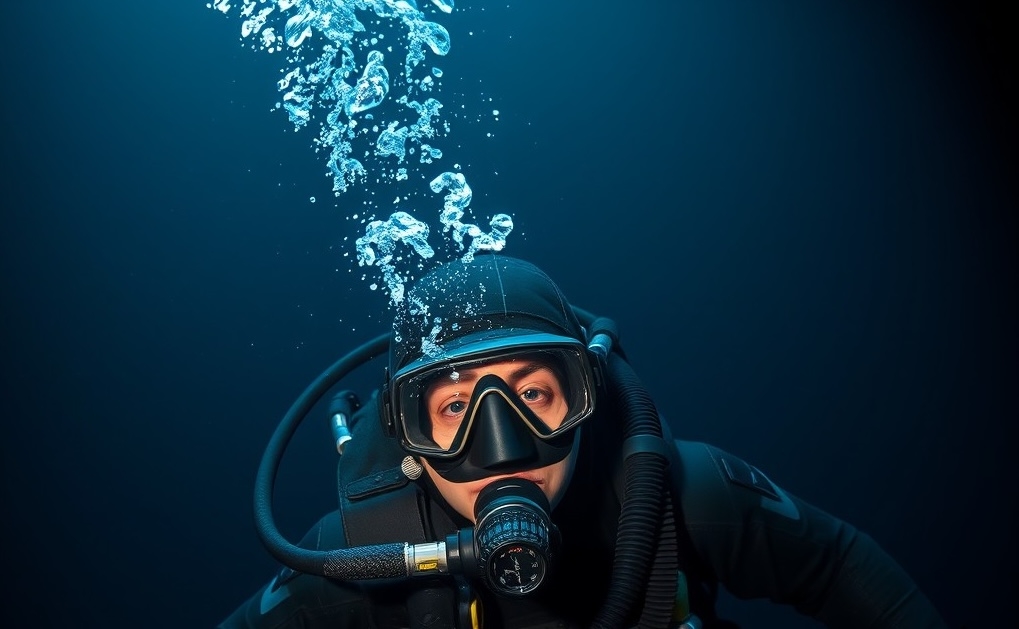
Technology's Role in Deep Diving
Technology has opened new frontiers in diving, allowing explorers to reach greater depths. Modern dive computers provide real-time data, helping divers follow precise decompression schedules. Special gas mixes reduce risks associated with pressure.
Rebreathers and Gas Mixes
Rebreathers have become essential for deep dives. They recycle exhaled air, making gas use more efficient and reducing the need for large tanks. Gas mixtures like trimix allow divers to breathe safely at depth.
Improved Gear
Stronger, more reliable equipment can withstand extreme conditions. Advanced wetsuits offer better insulation, and high-quality regulators ensure a steady flow of breathing gas.
Communication and Navigation Tools
Underwater communication systems help divers stay in touch with support teams, enhancing safety. Advanced navigation aids assist divers in finding their way through the often featureless underwater environment.
How Deep Diving Affects the Body
The human body isn't naturally suited for the high-pressure environment of deep water. One risk is high-pressure nervous syndrome (HPNS), which can cause tremors and dizziness. Managing how quickly a diver descends can help reduce these effects.
The Danger of Decompression Sickness
Decompression sickness, known as "the bends," happens when gases dissolved in the body form bubbles during ascent. This can lead to joint pain, nerve problems, or worse. Following decompression schedules is vital to prevent this.
Long-Term Health Considerations
Scientists are still studying the long-term effects of deep diving. Possible impacts on bones, lungs, and overall health mean divers need to stay informed and take steps to protect themselves.
Other Deep Diving Pioneers
While Ahmed Gabr holds the record, others have made significant strides in deep diving.
Nuno Gomes
Before Ahmed, Nuno Gomes held the deepest dive record. In 2005, he reached 318.25 meters (1,044 feet) in the Red Sea. His carefully planned dive faced similar challenges, and his achievement inspired many divers.
Verna van Schaik
Verna van Schaik holds the record for the deepest dive by a woman. In 2004, she dove to 221 meters (725 feet) in Boesmansgat Cave, South Africa. Her accomplishment showed that with determination and training, amazing things are possible.
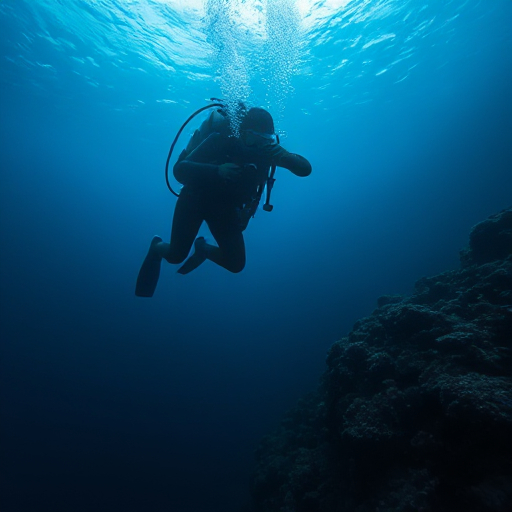
The Importance of Support Teams
Deep dives aren't solo efforts. Support teams are vital for the success and safety of the diver.
Planning Ahead
Support teams help plan every aspect of the dive, from equipment and gas mixes to emergency procedures. They make sure everything is ready for a successful dive.
Assisting During the Dive
While the diver is underwater, the team monitors progress. They may supply extra gas at certain depths and are prepared to help if any issues come up.
Helping After the Dive
After surfacing, the team assists with equipment and checks the diver's health. They watch for any signs of decompression sickness or other problems.
Deep Diving's Contribution to Science
Deep diving isn't just about records. It also helps us learn more about the ocean.
Exploring for Science
Divers can collect samples, study deep-sea life, and document underwater formations. Their firsthand observations support marine biology, geology, and environmental science.
Protecting the Ocean
By exploring the depths, divers raise awareness about the need to preserve these environments. Their discoveries can inform efforts to combat pollution and climate change.
Being Mindful of the Environment
As we explore deeper waters, it's important to protect the underwater world.
Respecting Sea Life
Divers should avoid disturbing marine creatures and habitats. This means not touching or feeding wildlife and being careful where they swim and anchor.
Preventing Pollution
Proper handling of equipment and waste disposal are essential. Divers and their teams must make sure nothing harmful is left behind.
Looking Ahead: The Future of Deep Diving
With ongoing advances in technology and training, new records might be on the horizon.
New Gear Innovations
Better rebreathers, advanced dive suits, and improved communication systems could help divers go even deeper.
Keeping Safety First
The diving community continues to focus on safety. Training programs evolve with the latest knowledge, ensuring divers are ready for deep diving challenges.
Blending Adventure and Science
There's growing interest in using deep dives for scientific research. Divers can help us understand marine ecosystems and the effects of climate change. This combination of adventure and science benefits everyone.
The Mental Side of Deep Diving
Diving to extreme depths tests the mind as much as the body.
Facing Fears
Going into the dark, high-pressure depths can be scary. Divers use mental techniques to manage fear and stay focused.
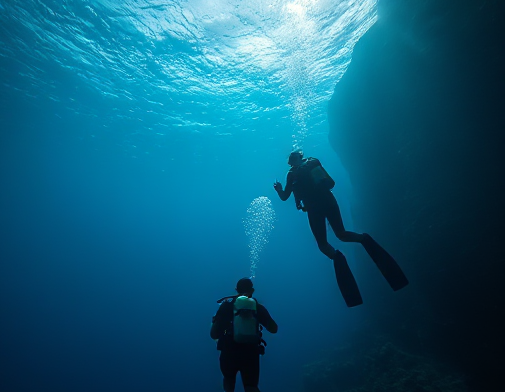
Building Confidence
Experience and preparation build confidence. Divers practice emergency procedures so they can respond quickly if something goes wrong.
Staying Mindful Underwater
Being fully present helps divers stay aware of their surroundings and their own condition. This awareness is key to making good decisions underwater.
Wrapping Up
The deepest scuba dives are more than impressive feats—they're stories of determination, courage, and curiosity. Divers like Ahmed Gabr inspire us to push our limits while respecting the ocean's power.
These achievements show what's possible with dedication and careful preparation. They remind us that the vast, mysterious ocean still holds many secrets. As we continue to explore, we connect more deeply with the natural world and appreciate the wonders beneath the waves.
Whether you're an aspiring diver or just fascinated by the deep, these incredible stories encourage us to embrace adventure and stay curious. With the right preparation and respect for the underwater environment, who knows what we might discover next?
FAQ
What's the deepest scuba dive ever recorded?
The deepest scuba dive was by Ahmed Gabr, who reached 332.35 meters (1,090 feet) in 2014 in the Red Sea near Dahab, Egypt.
Is deep scuba diving dangerous?
Yes, deep scuba diving has significant risks, like decompression sickness, nitrogen narcosis, oxygen toxicity, and equipment failure. Proper training and strict safety measures are crucial to reduce these dangers.
What equipment is used for extreme deep dives?
Divers use specialized gear like rebreathers, advanced dive computers, high-performance regulators, and custom gas mixtures such as trimix. This equipment is designed to work reliably under high pressure.
How do divers prevent decompression sickness on deep dives?
Divers plan their ascent carefully, making decompression stops at specific intervals. These pauses let gases safely leave the body tissues, preventing harmful bubbles from forming.
Can anyone try a deep scuba dive?
Deep scuba diving isn't for beginners. It requires extensive training, experience, and physical fitness. Divers must complete advanced certifications and master technical diving skills before attempting such dives.
Are there limits to how deep humans can scuba dive?
Yes, there are limits due to practical and physiological reasons. Factors like gas toxicity, equipment limits, and how the body handles pressure set boundaries on maximum depths.
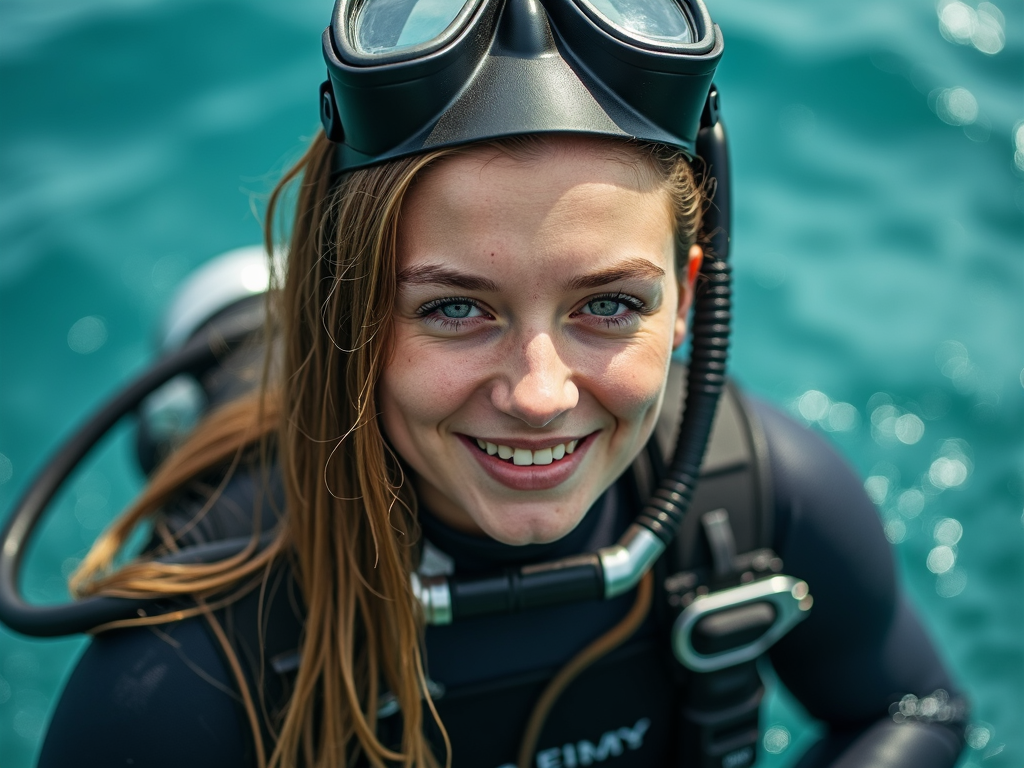
I'm a scuba enthusiast, and marine life lover. I enjoy writing about my diving adventures and sharing my knowledge with others.

I'm a passionate scuba diver and love to share my experiences with you. I enjoy writing about my experiences and sharing my knowledge with others.